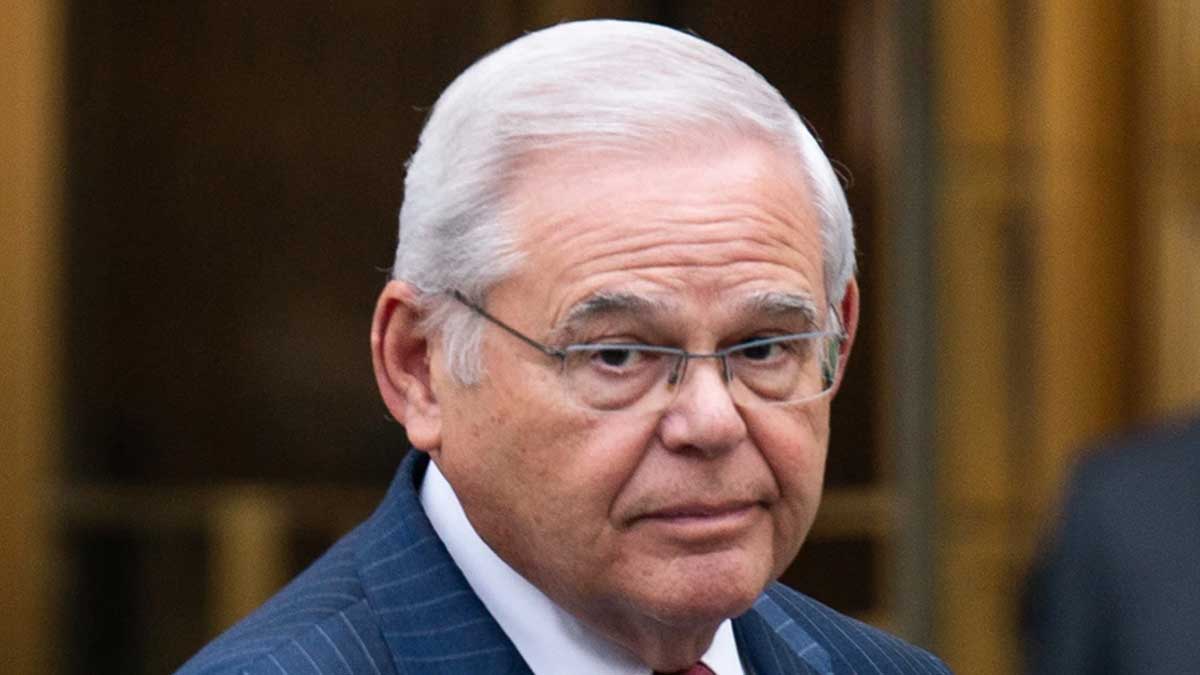- Home
- Billionaires
- Investing Newsletters
- 193CC 1000
- Article Layout 2
- Article Layout 3
- Article Layout 4
- Article Layout 5
- Article Layout 6
- Article Layout 7
- Article Layout 8
- Article Layout 9
- Article Layout 10
- Article Layout 11
- Article Layout 12
- Article Layout 13
- Article Layout 14
- Article Sidebar
- Post Format
- pages
- Archive Layouts
- Post Gallery
- Post Video Background
- Post Review
- Sponsored Post
- Leadership
- Business
- Money
- Small Business
- Innovation
- Shop
Recent Posts
Sen. Bob Menendez to Resign After Bribery Conviction

Senator Bob Menendez, a prominent Democrat representing New Jersey, is set to resign from his Senate seat after being convicted on multiple bribery charges. His decision, announced in response to mounting pressure from his fellow Senate Democrats, will officially take effect on August 20. This move comes after Menendez was found guilty on all 16 counts in a high-profile corruption trial, which accused him of using his political influence for personal gain.
According to The Washington Post, Menendez’s resignation will create a vacancy in the Senate that New Jersey Governor Phil Murphy will fill through a temporary appointment. The governor’s choice will serve out the remaining months of Menendez’s term, which is scheduled to end in January 2025. The appointment will be a crucial decision, as it will impact the balance of power in the Senate and could influence upcoming legislative efforts and political dynamics in New Jersey.
Menendez’s conviction arose from allegations that he had engaged in a corrupt scheme involving significant bribes. Federal prosecutors argued that the senator leveraged his political clout to provide favors to the Qatari and Egyptian governments, as well as to three New Jersey businessmen, in exchange for substantial personal benefits. The bribes reportedly included over $400,000 in cash, gold bars, and a luxury Mercedes-Benz. The trial revealed that Menendez used his position to assist these foreign governments and businessmen, who sought his help in various matters, including halting investigations and securing favorable policies.
The pressure on Menendez to step down intensified following his conviction. Senate Majority Leader Chuck Schumer, along with several other Democratic senators, publicly urged Menendez to resign. Their calls for resignation were accompanied by warnings of potential expulsion from the Senate if he did not comply. Schumer and his colleagues expressed a strong stance against corruption and emphasized the need for integrity within the legislative body. Expulsion from the Senate requires a two-thirds majority vote, a process that Senator Cory Booker, New Jersey’s other Democratic senator, has offered to lead if necessary.
Governor Murphy has expressed his commitment to ensuring that New Jersey remains well-represented in the Senate. In a statement, Murphy asserted that if Menendez refused to vacate his office voluntarily, he would advocate for the Senate to expel him. Murphy also emphasized his responsibility to appoint a temporary replacement to uphold the interests of New Jersey’s constituents. The governor’s role in appointing Menendez’s successor will be closely watched, as it will influence the state’s political landscape and the forthcoming elections.
The case against Menendez has garnered significant attention due to its implications for political ethics and accountability. The senator, who pleaded not guilty to the charges, faced convictions on various counts including bribery, fraud, and obstruction of justice. His trial brought to light a pattern of corrupt behavior, with evidence showing that Menendez accepted bribes in exchange for using his political power to benefit certain individuals and entities. The trial highlighted the extent of the corruption and the impact of Menendez’s actions on both domestic and international fronts.
Menendez’s sentencing is scheduled for October 29. While he faces a maximum possible sentence of up to 222 years in prison, such a severe outcome is considered unlikely given that he is a first-time offender. Nevertheless, the potential for a lengthy prison term underscores the gravity of the charges against him. The sentencing will mark a pivotal moment in this high-profile case and will determine the final consequences for Menendez’s political career and personal life.
The broader implications of Menendez’s case extend beyond his resignation. It has sparked discussions about the effectiveness of existing legal and institutional mechanisms for addressing corruption and holding public officials accountable. The trial and conviction serve as a reminder of the ongoing need for vigilance in maintaining ethical standards in politics. As the situation unfolds, it will be essential to monitor how the temporary appointment process is handled and how the upcoming elections will shape the future of New Jersey’s representation in the Senate.
Recent Posts
Categories
- 193cc Digital Assets2
- 5G1
- Aerospace & Defense46
- AI37
- Arts3
- Banking & Insurance11
- Big Data3
- Billionaires449
- Boats & Planes1
- Business328
- Careers13
- Cars & Bikes76
- CEO Network1
- CFO Network17
- CHRO Network1
- CIO Network1
- Cloud10
- CMO Network18
- Commercial Real Estate7
- Consultant1
- Consumer Tech180
- CxO1
- Cybersecurity68
- Dining1
- Diversity, Equity & Inclusion4
- Education7
- Energy8
- Enterprise Tech29
- Events11
- Fintech1
- Food & Drink2
- Franchises1
- Freelance1
- Future Of Work2
- Games141
- GIG1
- Healthcare78
- Hollywood & Entertainment186
- Houses1
- Innovation42
- Investing2
- Investing Newsletters4
- Leadership65
- Lifestyle11
- Manufacturing1
- Markets20
- Media193
- Mobile phone1
- Money13
- Personal Finance2
- Policy567
- Real Estate1
- Research6
- Retail1
- Retirement1
- Small Business1
- SportsMoney33
- Style & Beauty1
- Success Income1
- Taxes2
- Travel10
- Uncategorized8
- Vices1
- Watches & Jewelry2
- world's billionaires418
Related Articles
Trump Moves $4B Stake in Truth Social Parent, Stock Drops 6%
Donald Trump recently transferred his 57% stake in Trump Media & Technology...
By 193cc Agency CouncilDecember 20, 2024House Rejects Trump-Backed Funding Bill, Shutdown Looms
The U.S. House of Representatives rejected a new government funding bill on...
By 193cc Agency CouncilDecember 20, 2024Trump Named Time’s Person of the Year for Second Time
On Thursday, Time magazine honored Donald Trump as its “Person of the...
By 193cc Agency CouncilDecember 12, 2024Meta Donates $1 Million to Trump’s Inaugural Fund
Meta, the parent company of Facebook and Instagram, has confirmed a $1...
By 193cc Agency CouncilDecember 12, 2024















Leave a comment